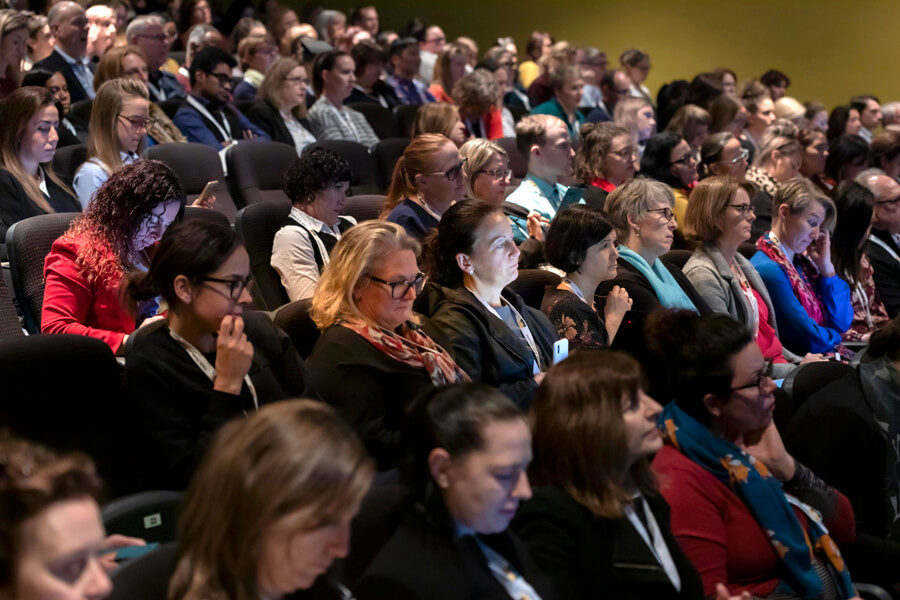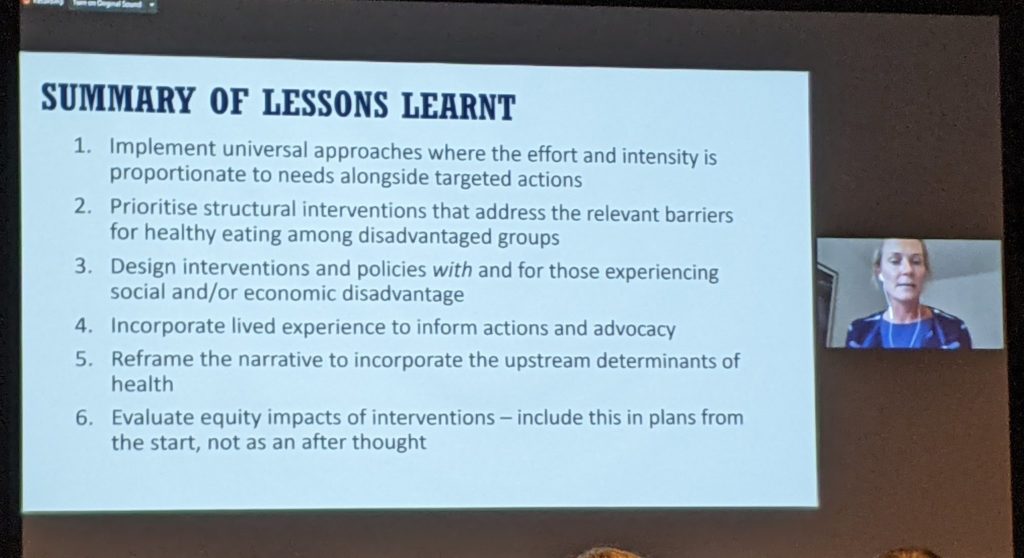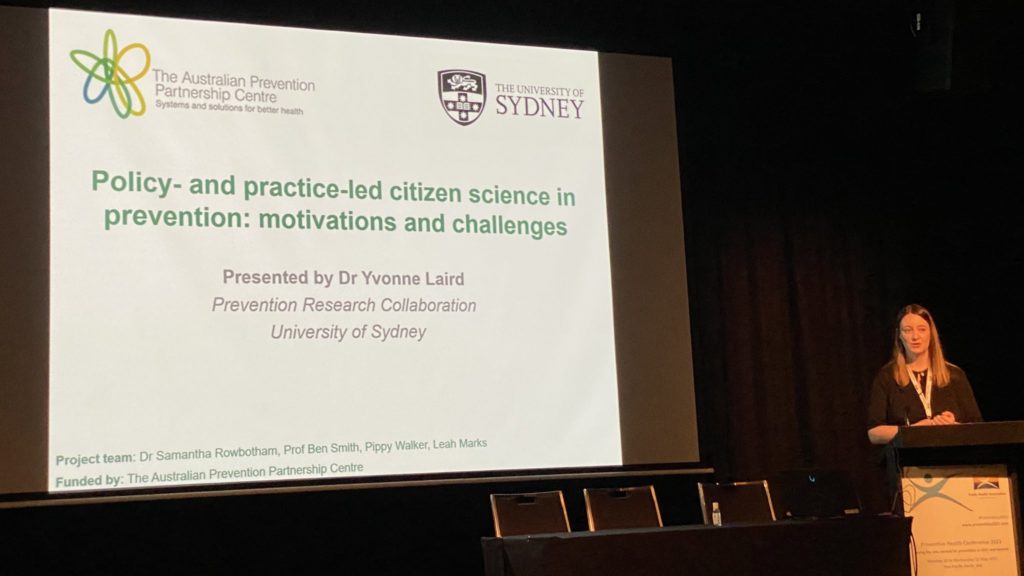#Prevention2021 Conference Wrap

DATE
TYPE Prevention Centre News
We were proud to be a founding sponsor of the conference and to support 26 early and mid-career researchers to attend for their ongoing professional development.
Dr Kathryn Backholer was a keynote speaker in the opening session on how we can pragmatically address the social determinants of health. Dr Backholer presented on her work around healthy diets and stressed that health equity doesn’t always translate to action and all too often falls off the agenda. She told delegates if we design for the most marginalised in our society we will see benefits across the population and her summary of lessons learnt were well received.

With the conference hosted in Perth, Ms Jaithri Ananthapavan had a captive audience with her economic evaluation of the Western Australian LiveLighter mass media campaign. Her presentation showed how obesity prevention interventions like LiveLighter have the potential to be highly cost effective, offering value for money, improving community health outcomes and producing substantial healthcare cost savings.
Citizen Science
of the Prevention Centre’s Citizen Science project was well represented with multiple presentations from members of the project team focusing on the growing importance of citizen science for prevention. Dr Samantha Rowbotham looked at stakeholder perceptions of citizen science in prevention policy and practice. Ms Leah Marks discussed greater engagement of the public in prevention with a scoping review of approaches and Dr Yvonne Laird addressed how embedding citizen science in policy and practice for prevention can support the democratisation of the research process.

PHNs
Primary Health Networks and the role they can play in prevention were another key focus of presentations from our researchers. Dr Carissa Bonner discussed the role of PHNs in assessing cardiovascular risk and the need for better implementation with only 17% of eligible patients having risk factors recorded. Ms Pippy Walker reported on a needs assessment review of community-based pain programs commissioned by PHNs and the role they can play in CVD and chronic pain. Beyond PHNs, Ms Lauren Gibson assessed the role of community managed organisations and how preventative care can be part of staff routine practice.
COVID-19
The global pandemic was never too far away from conference discussion and Mr Samuel Cornell reported on the positives that survey respondents had found from COVID-19. Dr Bonner also presented on capability, opportunity and motivation barriers for COVID testing through the prism of health literacy.
Tobacco Control
Efforts in tobacco control and prevention were addressed during several sessions in the conference including Professor Melanie Wakefield who presented on the misconceptions about roll-your-own tobacco and the need for warning messages to address these.
Dr Melanie Pescud from the Prevention Centre’s Research Network attended the conference and as co-lead for our project addressing complexity in prevention research using systems approaches and she was particularly interested in sessions highlighting tobacco industry attempts to discredit advocates.
From “Dirty Politics: Industry Character Assassination 101” (Mr Shane Kawaneta Bradbrook, Tobacco Control Advocate, Te Ao Hurihuri) to “Tackling tobacco use: accelerating improvements in Indigenous health outcomes” (Dr Raglan Maddox, Fellow, Study Director for Tackling Indigenous Smoking, Australian National University), the messaging was clear around the need to counter and expose tobacco industry tactics
Dr Pescud was impressed by the courage of Mr Bradbrook and other university professors who have been systematically attacked by industry for their public health advocacy efforts but have stood up to fight for social justice in the context of public health. “It revealed that public health advocates and academics require adequate legal support for their work when under attack,” she said.
Presenting findings from the Tackling Indigenous Smoking work, Dr Maddox showed that while there continues to be many areas for improvement as it relates to smoking rates, there is good news because smoking rates are dropping in Aboriginal and Torres Strait Islanders despite ongoing colonisation practices and tobacco industry tactics. Dr Pescud noted “Importantly, and in alignment with what the WHO Framework Convention on Tobacco Control states, Dr Maddox reminded the audience that Australia’s Indigenous people need to be involved in the development, implementation, and evaluation of any tobacco-related activities”.
Conference Portal
The conference sessions will be available to listen to online for another few weeks so don’t forget to check out the online portal for the sessions you may have missed. The conference created a lot of twitter chatter so also check out #Prevention2021. This was a great hybrid conference and fingers crossed the ‘new normal’ will look a little more in-person for the next conference in Brisbane next year.




